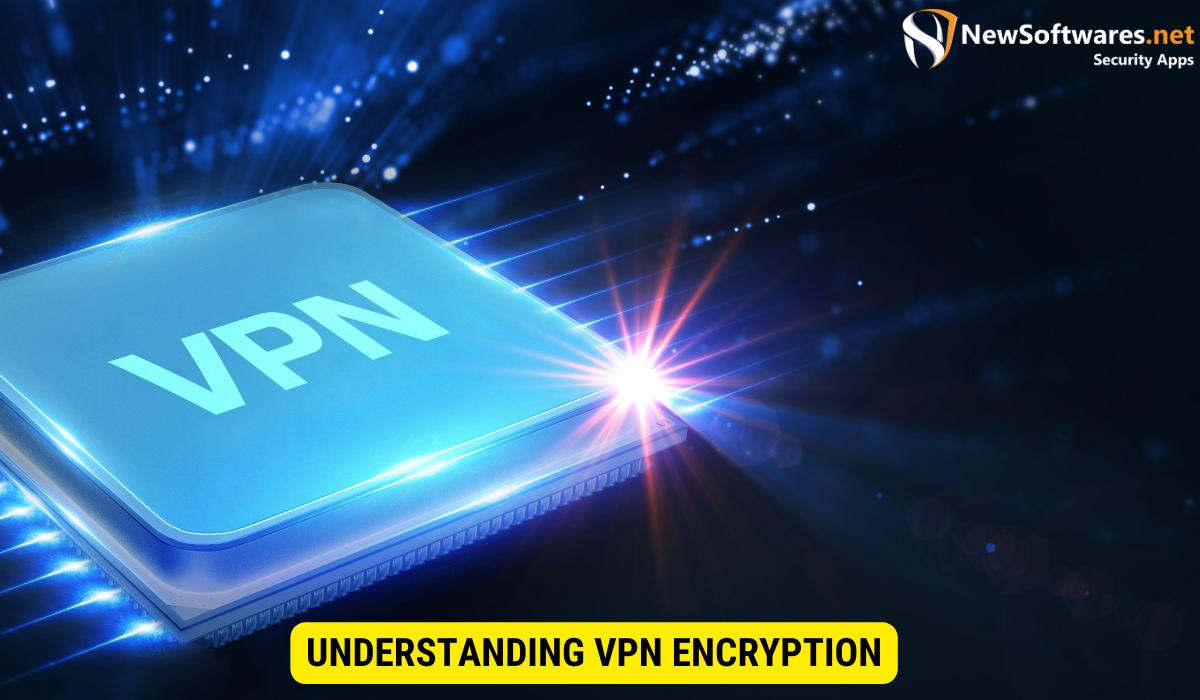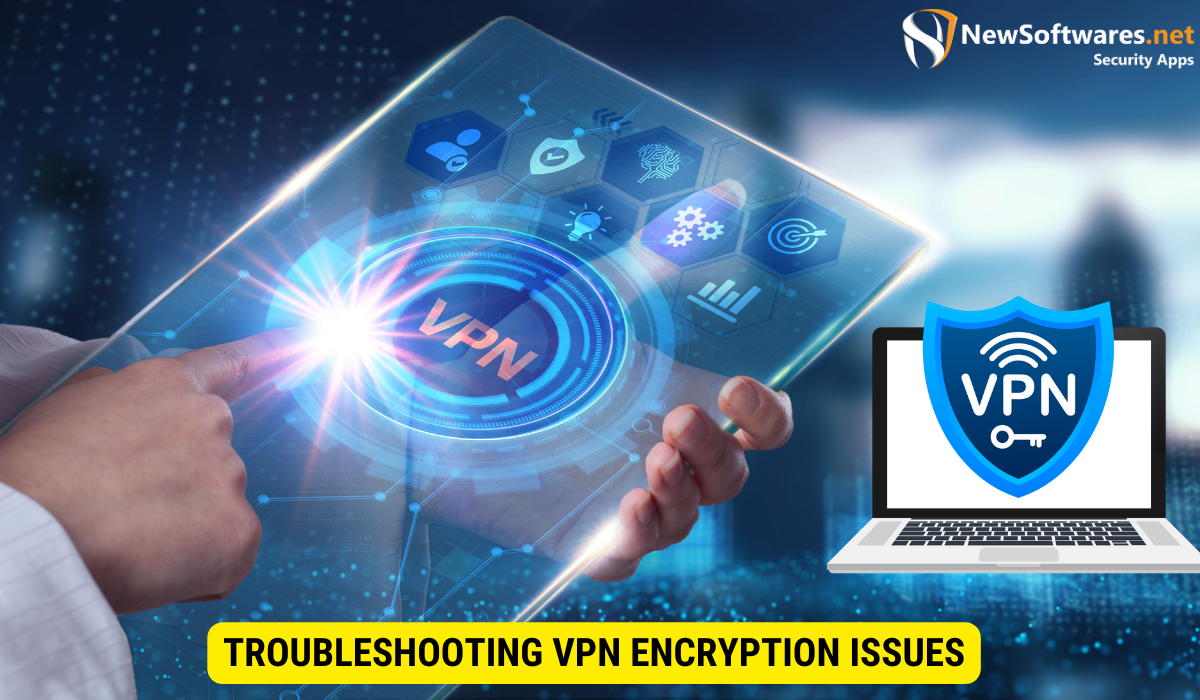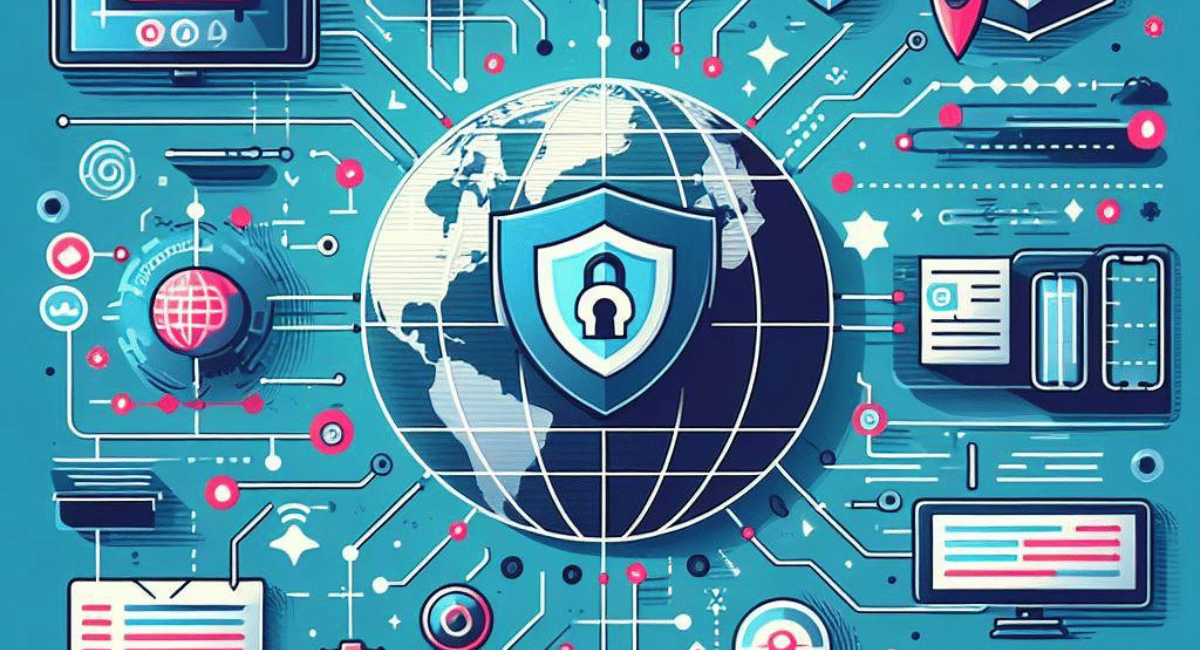To check if your data is encrypted over a VPN, you can use online tools and websites that analyze your VPN connection. These tools will confirm whether your data is encrypted and often display the encryption algorithm in use. Look for AES-256 or other strong encryption protocols to ensure your data remains secure.
In today’s digital age, protecting online privacy has become more important than ever. With cyber threats on the rise, ensuring that our sensitive data remains secure when using a virtual private network (VPN) is crucial. One of the key concerns for VPN users is whether their data is encrypted. Together, we will discover how VPN encryption works and provide a comprehensive guide on how to check if your data is encrypted over a VPN.
Understanding VPN Encryption

Before delving into the specifics of checking VPN encryption, it is essential to understand what VPN encryption entails. VPN encryption refers to encoding your data when it travels between your device and the VPN server. By encrypting your data, VPNs provide an additional layer of security, making it extremely challenging for cybercriminals or unauthorized third parties to decipher your sensitive information.
What is VPN Encryption?
VPN encryption utilizes complex algorithms to scramble your data, rendering it unreadable to anyone who intercepts it. This encryption is applied to all data transmitted and received through the VPN tunnel, including browsing activities, file transfers, and other online communications. As a result, even if a hacker manages to intercept your data, they cannot decode or make sense of the information.
When you connect to a VPN server, your data is encrypted using protocols such as OpenVPN, IPSec, or L2TP/IPSec. These protocols create a secure connection between your device and the VPN server, ensuring your data remains protected throughout its journey. The level of encryption provided by a VPN can vary, with some services offering military-grade encryption that is virtually unbreakable.
VPN encryption transforms your data into a ciphertext, which can only be deciphered with the corresponding decryption key. This key is known only to your device and the VPN server, ensuring that only authorized parties can access and understand the data. The encryption process happens in real time, with your data being encrypted before it leaves your device and decrypted upon arrival at the VPN server.
Importance of VPN Encryption
VPN encryption is vital in safeguarding your online privacy and protecting sensitive data from prying eyes. Whether you’re accessing the internet on public Wi-Fi networks or simply want to keep your online activities private, VPN encryption provides an additional defense against potential cyber threats. By encrypting your data, VPNs ensure that your personal information, for example passwords, credit card details, and browsing history, remains secure.
One of the key benefits of VPN encryption is its ability to protect your data from interception and surveillance. When you connect to a VPN, your data is encrypted, making it nearly impossible for anyone to eavesdrop on your online activities. This is particularly important when using public Wi-Fi, where hackers and malicious actors often lurk, waiting to intercept sensitive information.
In addition to protecting your data from interception, VPN encryption helps bypass censorship and access geo-restricted content. By encrypting your data and routing it through a VPN server in a different country, you can mask your true location and access sites and services that may be blocked in your current location. This is especially useful for individuals living in countries with strict internet censorship policies.
Furthermore, VPN encryption can also protect your online identity by masking your IP address. Your IP address is a single identifier that reveals your approximate location and can be used to track your online activities. Encrypting your data and routing it through a VPN server means your true IP address is hidden, making it difficult for websites, advertisers, or other entities to track your online behavior.
Overall, VPN encryption is crucial in ensuring online security and privacy. By encrypting your data, VPNs provide a secure tunnel for online activities, protecting sensitive information from potential threats. Whether browsing the web, conducting online transactions, or communicating with others, VPN encryption offers peace of mind and a heightened level of protection.
Setting Up Your VPN
Once you understand the significance of VPN encryption, setting up a VPN that meets your requirements is next.
Setting up a VPN can seem daunting, but it can be a straightforward process with the right guidance. This guide will stride you through the steps to choose the right VPN and configure its settings to ensure your data is encrypted and secure.
Choosing the Right VPN
When selecting a VPN provider, choosing one that offers robust encryption protocols is crucial. Look for VPNs that provide industry-standard encryption methods, such as AES-256, which is currently considered unbreakable. This level of encryption ensures your data remains secure and protected from prying eyes.
In addition to encryption, it is important to consider other factors when choosing a VPN. Look for a VPN service with a wide network of servers in various locations worldwide. This will let you to bypass geo-restrictions and access content from different regions.
Furthermore, ensure that the VPN service you choose has a strict no-logs policy to guarantee the highest level of privacy. A no-logs policy means that the VPN provider does not keep any records of your online activities, ensuring your browsing history remains private and confidential.
Configuring Your VPN Settings
After choosing your VPN, it’s time to configure the settings to ensure your data is encrypted. Most VPN providers offer user-friendly applications that make the setup process a breeze. Follow the instructions provided by VPN provider to install and configure the software, selecting the encryption protocol of your choice.
You may be prompted to select a server location during the setup process. It is recommended to select a server that is closest to your physical location for optimal performance. However, if you aim to bypass geo-restrictions and access content from a specific region, you can choose a server in that location.
Once the software is installed and configured, you can connect to the VPN by clicking the connect button. This will create a safe connection between your device and the VPN server, encrypting all your internet traffic.
It is important to note that some VPN offer additional features, for example a kill switch or split tunneling. A kill switch ensures that internet connection is cut off if the VPN connection drops, preventing any data leaks. Split tunneling lets you to choose which apps or websites use the VPN connection and which use your regular internet connection.
By following these steps, you can set up a VPN that provides you with the highest level of safety and privacy. Regularly update your VPN software to ensure you have the latest security patches and features.
Checking Your VPN’s Encryption
Now that you have set up your VPN with the desired encryption settings verifying if your data is indeed being encrypted is essential.
Tools for Checking VPN Encryption
Several online tools and websites can help determine whether your VPN encrypts your data effectively. These tools analyze your VPN connection, providing valuable insights into its encryption capabilities. Some popular tools include online VPN testing platforms and websites that perform real-time VPN encryption tests.
Interpreting the Results
When testing your VPN’s encryption, it’s crucial to understand the results correctly. Look for indicators confirming whether your data is encrypted and if the encryption algorithm is robust. Ideally, you should aim for results demonstrating AES-256 encryption or any other advanced encryption protocols your VPN provider supports.
Ensuring Your Data is Secure
While using a VPN with strong encryption offers significant protection, it is essential to maintain a proactive approach towards data security.
Regularly Testing Your VPN’s Encryption
Periodically testing your VPN’s encryption ensures that it continues providing the intended security level. Set regular reminders to test your VPN’s encryption using the tools mentioned earlier. If any vulnerabilities or weaknesses are identified, consider contacting your VPN provider for assistance or switch to a more secure VPN service.
Additional Measures for Data Security
In addition to VPN encryption, implementing other safety measures can further enhance the protection of your data. Ensure your devices are modernized with the latest security patches, use strong and unique passwords, enable two-factor authentication whenever possible, and be cautious while downloading files or clicking suspicious links.
Troubleshooting VPN Encryption Issues

You may encounter issues with your VPN’s encryption despite taking all necessary steps. Let’s explore some common problems and their potential solutions.
Common VPN Encryption Problems
Some common VPN encryption issues include slow connection speeds, compatibility issues with certain devices or operating systems, and difficulties establishing connections to specific servers.
Solutions for VPN Encryption Issues

When experiencing VPN encryption problems, ensure you have configured the encryption settings correctly. Double-check if you have selected the appropriate encryption protocol supported by your VPN provider. Additionally, try connecting to different VPN servers or contacting your VPN provider’s customer support for assistance troubleshooting the issue.
Key Takeaways
- VPN encryption is crucial for protecting online privacy and sensitive data.
- Choose a VPN provider that offers strong encryption protocols like AES-256.
- Regularly test your VPN’s encryption using online tools to ensure it remains secure.
- Implement additional security measures such as keeping your devices updated and using strong passwords.
- Troubleshoot VPN encryption issues by verifying settings and contacting your VPN provider’s support.
FAQs
What is VPN encryption, and why is it important?
VPN encryption involves encoding your data when it travels between your device and the VPN server, making it unreadable to unauthorized parties. It’s essential for protecting sensitive information and ensuring online privacy.
How does VPN encryption work?
VPN encryption uses complex algorithms to scramble data, rendering it unreadable to interceptors. This encryption applies to all data transmitted through the VPN tunnel, providing security for various online activities.
What level of encryption should I look for in a VPN?
Look for VPNs that offer robust encryption, such as AES-256, which is considered highly secure. Strong encryption ensures your data remains protected from cyber threats.
What are some common issues with VPN encryption?
Common problems include slow connection speeds, compatibility issues, and difficulties connecting to specific servers. These can often be resolved by configuring encryption settings correctly or contacting your VPN provider’s support.
How can I enhance data security beyond VPN encryption?
Additional measures include keeping your devices updated, using strong passwords, enabling two-factor authentication, and being cautious while downloading files or clicking on links.
Concslusion
By following these steps and staying proactive about data security, you can be confident that your data is encrypted when using a VPN. Remember to choose a reputable VPN provider, regularly test your VPN’s encryption, and adopt additional security measures to maintain the highest level of protection for your online activities. Stay secure and enjoy the privacy that VPN encryption offers!
